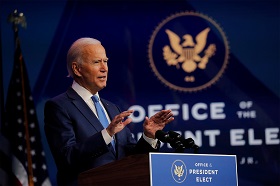Dr. Jack Thompson is a Senior Strategic Analyst at the Hague Centre for Strategic Studies (HCSS). His research focuses on European security, US foreign policy, transatlantic relations, and great power competition. He was Head of the Global Security Team at the Center for Security Studies, ETH Zurich and Lecturer at the Clinton Institute, University College Dublin. He is author of Great Power Rising: Theodore Roosevelt and the Politics of US Foreign Policy (Oxford University Press, 2019).
In an interview with the RIAC, Dr. Thompson discusses the characteristics of contemporary conflicts and the role of the UN Security Council in preventing and managing armed conflicts. He shares his reflections on hybrid warfare as a security challenge and raises some interesting questions. Interviewed by Tatyana Kanunnikova.
Dr. Jack Thompson is a Senior Strategic Analyst at the Hague Centre for Strategic Studies (HCSS). His research focuses on European security, US foreign policy, transatlantic relations, and great power competition. He was Head of the Global Security Team at the Center for Security Studies, ETH Zurich and Lecturer at the Clinton Institute, University College Dublin. He is author of Great Power Rising: Theodore Roosevelt and the Politics of US Foreign Policy (Oxford University Press, 2019).
In an interview with the RIAC, Dr. Thompson discusses the characteristics of contemporary conflicts and the role of the UN Security Council in preventing and managing armed conflicts. He shares his reflections on hybrid warfare as a security challenge and raises some interesting questions. Interviewed by Tatyana Kanunnikova.
What important characteristics of modern armed conflicts would you highlight?
I would highlight the interplay between major power competition and hybrid warfare. It will be fascinating in the coming years to see the extent to which hybrid warfare acts as an accelerant or a safety mechanism in relations between China, Europe, Russia, and the United States. In other words, will the growing prominence of hybrid operations make an all-out war between, say, China and the United States more likely? Or will it act as a pressure valve, allowing the major powers to compete in ways that fall short of full-scale war?
Are there effective ways to counter hybrid warfare?
For the democratic West, which in many ways is more vulnerable to hybrid operations, at least for now, boosting resilience is the main focus. This includes improving the coherence of alliances such as NATO, developing better tools for combating disinformation, and building a more durable infrastructure. More abstractly, it is worth pondering whether hybrid operations are, if not a good thing, often better than the alternative: at least sometimes, all-out war. Hybrid operations are here to stay, so the best way to think about them is how to prevent them from leading to escalation and to prevent them from doing critical damage.
Recently, French President Emmanuel Macron said that the UN Security Council “no longer provides good solutions to global problems.” Do the current mechanisms of international cooperation need an overhaul to effectively tackle armed conflicts?
Institutions such as the UN Security Council play a crucial role in providing at least a degree of order in the international system. To be sure, the UNSC is flawed, and major power competition is worsening the problem, but there is no question that an imperfect but functional UNSC is better than nothing at all. The UNSC is a crucial instrument for preventing and managing armed conflict. This saves many lives and increases global welfare. Don’t get rid of the UNSC; reform it.
What kind of reforms would be beneficial?
There are a number of competing reform proposals out there, many of which would be sensible, which tend to focus on expanding the UNSC and reducing the power of the existing members. However, none of them are likely to be implemented any time soon, because at least three of the permanent members (China, Russia, and the United States) have no interest in diluting their influence. For now, the best that we can hope for is more incremental measures designed to reduce the impact of major power competition on the UNSC. How can we encourage China and the United States not to delay UNSC action on the COVID-19 pandemic, as they did for a number of months last year? That is the sort of thing reform efforts should focus on in the short term.
What will Joe Biden's presidency mean for Afghanistan? In your opinion, will he stick to the U.S. troop withdrawal deal or will he take a tougher stance on the Taliban? What is the most likely scenario?
It is unlikely that Biden will reverse the Trump administration’s plan to further reduce US troop levels in Afghanistan. However, Biden will probably adopt a more consultative approach, working with allied countries to maintain a foreign troop presence until a peace deal can be agreed with the Taliban. More broadly, Biden’s team recognizes the need to disentangle the United States from conflicts, such as the one in Afghanistan, in order to focus on competition with other major powers.
What conflicts are likely to emerge or worsen in the near future? What regions might be affected?
As I mentioned, hybrid operations will continue to increase in frequency. Another area to look for is a conflict caused directly or indirectly by global warming and environmental degradation. The worst-affected areas will be in the Global South, but these conflicts will affect, to one degree or another, the entire globe. Problems such as mass migration, radicalization, and food insecurity will cause problems on a global scale.








